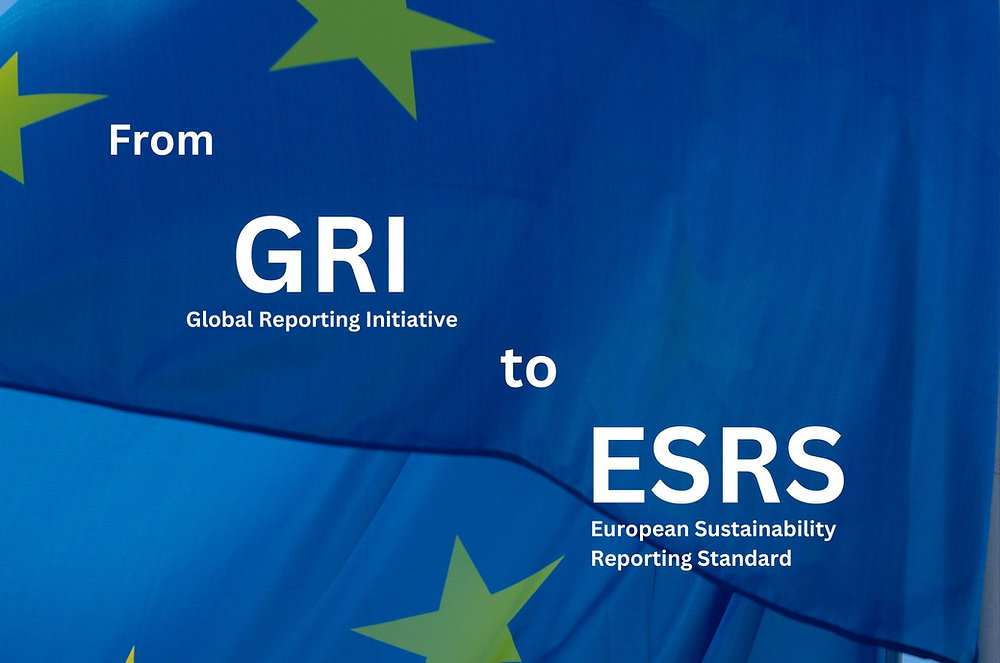ESRS European Sustainability Reporting Standards have become increasingly relevant in today’s business landscape, especially for Small and Medium Enterprises (SMEs). In this article, we will explore the advantages that SMEs can gain from adopting these standards, which are designed to enhance sustainability reporting practices. By delving into these benefits, SMEs can better understand the value proposition of integrating ESRS into their operations.
Enhanced Credibility and Reputation:
One of the primary advantages of implementing ESRS European Sustainability Reporting Standards for SMEs is the enhanced credibility and reputation that comes with transparent and standardized sustainability reporting. By adhering to recognized standards, SMEs can demonstrate their commitment to sustainability and responsible business practices. This can lead to increased trust from stakeholders, including customers, investors, and regulatory bodies, ultimately bolstering the company’s reputation in the market.
Access to Capital and Investment Opportunities:
ESRS compliance can also open doors to new capital and investment opportunities for SMEs. Many investors and financial institutions are increasingly considering environmental, social, and governance (ESG) factors in their decision-making processes. By aligning with ESRS, SMEs can attract socially responsible investors who prioritize sustainability performance. Additionally, compliance with ESRS can enhance SMEs’ eligibility for green financing and grants aimed at supporting sustainable initiatives, providing access to additional sources of capital for growth and expansion.
Cost Savings and Operational Efficiency:
Implementing ESRS European Sustainability Reporting Standards can result in cost savings and improved operational efficiency for esrs sme. By adopting standardized reporting frameworks, SMEs can streamline data collection, analysis, and reporting processes related to sustainability performance. This efficiency not only reduces the administrative burden associated with reporting but also enables SMEs to identify areas for improvement and optimize resource allocation, leading to overall cost reductions and enhanced competitiveness in the market.
Risk Management and Resilience:
SMEs face various sustainability-related risks, including regulatory compliance risks, supply chain disruptions, and reputational damage. ESRS compliance provides SMEs with a structured framework for identifying, assessing, and mitigating these risks effectively. By integrating sustainability considerations into their risk management processes, SMEs can enhance their resilience to external shocks and uncertainties, safeguarding their long-term viability and continuity in the market.
Stakeholder Engagement and Transparency:
ESRS European Sustainability Reporting Standards promote stakeholder engagement and transparency by encouraging SMEs to communicate their sustainability performance openly and effectively. Transparent reporting builds trust and fosters closer relationships with stakeholders, including customers, employees, suppliers, and communities. Moreover, engaging stakeholders in the sustainability reporting process can provide valuable insights and feedback that help SMEs refine their sustainability strategies and priorities, driving continuous improvement and innovation.
Competitive Advantage and Differentiation:
In today’s competitive business landscape, differentiation is key to standing out in the market. Compliance with ESRS European Sustainability Reporting Standards can serve as a powerful differentiator for SMEs, especially in industries where sustainability considerations are increasingly important to consumers and B2B customers. By showcasing their commitment to sustainability through standardized reporting, SMEs can gain a competitive edge, attract environmentally conscious customers, and differentiate their brand in crowded marketplaces.
Conclusion:
In conclusion, the advantages of implementing ESRS European Sustainability Reporting Standards for SMEs are numerous and far-reaching. From enhancing credibility and reputation to accessing capital, driving cost savings, managing risks, and fostering stakeholder engagement, ESRS compliance offers a host of benefits that can positively impact SMEs’ bottom line and long-term sustainability. By embracing these standards, SMEs can not only meet stakeholder expectations but also contribute to a more sustainable and resilient economy for the future.










